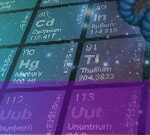Dallas Cowboys Quiz (1960-2000): 1) Most receiving TD,
season? 2) Most interceptions, career? 3) Most TD passes,
season? 4) What years did they win the Super Bowl? Answers
below.
The Gettysburg Address
The Battle of Gettysburg took place in the summer of 1863, July
1st-3rd. There were some 53,000 casualties and, for all intents
and purposes, the Civil War was over, though, unfortunately,
tens of thousands would lose their lives in some horrific final
conflicts over the following 20 months.
In the fall of 1863, President Abraham Lincoln was notified that
there would be a dedication of a National Soldiers” Cemetery at
Gettysburg, where at least 5,000 bodies had been hastily
identified and buried from the battle. Lincoln was told by
organizer David Wills of Gettysburg to come up with a few
“appropriate words” and the president accepted. He then took
the task to heart and the rest is history, November 19, 1863.
The orator of the day, however, was Edward Everett, one of the
most renowned speakers of his time, and certainly one of the
most distinguished. Everett, after all, had not only been the
president of Harvard, but he was also a U.S. Senator and
Secretary of State. Everett spoke before Lincoln, and for two
hours.
But this was no Bill Clinton or Fidel Castro stem-winder. While
cursory accounts of the Gettysburg Address note that Everett
gave a long speech, few accounts give the man credit for giving
one of the most moving orations in, perhaps, our nation”s history.
Everett saw it as his duty to recap the events of July 1-3, and so
he met at length with Union Commanding General George
Meade and then set about defining the battle. There were some
15,000 in attendance on November 19 (some say 30-50,000) and
as Everett stepped forward the crowd stood in silence. He spoke
from memory.
“Overlooking these broad fields now reposing from the labors of
the waning year, the mighty Alleghenies dimly towering before
us, the graves of our brethren beneath our feet, it is with
hesitation that I raise my poor voice to break the eloquent silence
of God and Nature…As my eye ranges over the fields whose
sods were so lately moistened by the blood of gallant and loyal
men, I feel, as never before, how truly it was said of old that it is
sweet and becoming to die for one”s country.”
Everett then traced the origins of the battle and the different
features of the three days of fighting. Drawing on Pericles, he
said, “The whole earth is the sepulcher of illustrious men.” And
in closing, his voice finally giving out, “Down to the latest period
of recorded time, in the glorious annals of our common country
there will be no brighter page than that which relates The Battles
of Gettysburg.” It is said that throughout the speech the crowd
was often in tears as he described the action.
As Carl Sandburg wrote in his biography of Abraham Lincoln,
“It was the effort of (Everett”s) life and embodied the perfections
of the school of oratory in which he had spent his career.”
Against this backdrop strode Lincoln (after a desultory
performance by the Baltimore Glee Club singing a horrendous
song written for the occasion by Benjamin French). Lincoln had
two sheets of paper, which he occasionally glanced at. The
Cincinnati Commercial reporter wrote, “The President rises
slowly, draws from his pocket a paper, and, when commotion
subsides, in a sharp, unmusical treble voice, reads the brief and
pithy remarks.”
Actually, many in the crowd were still stirring after Everett”s
oration, so they didn”t realize Lincoln was finished when he
said, “that government of the people, by the people, for the
people, shall not perish from the earth.” After all, it was less
than 3 minutes since he started.
Of course Lincoln knew full well what he was doing. As you
read it, understand that this was no mere dedication. He wanted
to make a general argument and he knew it would be widely
read. Here now.The Gettysburg Address:
Four score and seven years ago our fathers brought forth on this
continent, a new nation, conceived in Liberty, and dedicated to
the proposition that all men are created equal.
Now we are engaged in a great civil war, testing whether that
nation, or any nation so conceived and so dedicated, can long
endure. We are met on a great battlefield of that war. We have
come to dedicate a portion of that field, as a final resting place
for those who here gave their lives that that nation might live. It
is altogether fitting and proper that we should do this.
But, in a larger sense, we cannot dedicate, we cannot consecrate,
we cannot hallow, this ground. The brave men, living and dead,
who struggled here, have consecrated it, far above our poor
power to add or detract. The world will little note, nor long
remember what we say here, but it can never forget what they did
here.
It is for us the living, rather, to be dedicated, here, to the
unfinished work that they who fought here have thus far so nobly
advanced. It is rather for us to be here dedicated to the great task
remaining before us; that from these honored dead we take
increased devotion to that cause for which they gave the last full
measure of devotion; that we here highly resolve that these dead
shall not have died in vain; that this nation, under God, shall
have a new birth of freedom, and that government of the people,
by the people, for the people, shall not perish from the earth.
[I looked through 5 references and all 5 had different lengths.
ranging from 261 words to 272. Even here, I combined the
versions of Carl Sandburg and Michael Beschloss.so don”t drill
me on it. It depends on the drafts and whether “can not” is
counted as one or two words (some versions have “cannot”) as
well as other words here and there. For instance, “poor power”
is listed as just “power” by some. As for me, I didn”t count the
above.]
The immediate response to the address was mixed. The Chicago
Times opined, “(The) cheek of every American must tingle with
shame as he reads the silly, flat, and dish-washy utterances of the
man who has to be pointed out to intelligent foreigners as the
President of the United States.”
But soon there were the plaudits. The Chicago Tribune stated
that Lincoln”s words would “live among the annals of man.”
The editor of Harper”s Weekly added that the address was “as
simple and felicitous and earnest a word as was ever spoken.”
The Washington Chronicle reported, “though short, (it was)
glittered with gems,” and the Springfield (Mass.) Republican
said the “little speech (was) deep in feeling, compact in thought
and expression, and tasteful and elegant in every word and
comma.”
Most newspapers really focused on Everett”s oration, but Edward
himself wrote Lincoln afterwards, “I should be glad if I could
flatter myself that I came as near to the central idea of the
occasion in two hours as you did in two minutes.” Lincoln
replied to him, “In our respective parts yesterday, you could not
have been excused to make a short address, nor I a long one. I
am pleased to know that, in your judgment, the little I did say
was not entirely a failure.”
Historian Russell Weigley writes that the Gettysburg Address
“superseded the Declaration of Independence as the most basic
assertion of the principles embodied by the U.S.(while) the
Declaration (is a) ringing manifesto for the right of revolution,
(the) Gettysburg Address is a rejection of any right of revolution
within the U.S.”
Michael Beschloss adds that “Lincoln was saying we have too
deep an obligation to the generations that had created and
nourished ”a new nation, conceived in liberty,” to permit us to
undo their work.”
And historian Henry Commager writes that Lincoln “made the
average American feel that his dignity as a citizen of a free
republic was bound up with the fate of the Union, whose
destruction would be a victory for the enemies of freedom in
every country.”
I wrote last January that when I visited the Lincoln Memorial,
standing there in his shadow you can”t help but get a bit misty as
you read the Gettysburg Address as chiseled on those stone
walls. If you haven”t been there yourself in a while, go. Take
the kids. Now, more than ever, we all could use a little Lincoln.
[Sources: “Lincoln,” David Herbert Donald; “Abraham Lincoln,”
Carl Sandburg; “American Heritage: The Presidents,” Michael
Beschloss; “A Great Civil War,” Russell Weigley; “The Growth
of the American Republic,” Henry Commager et al.]
—–
Stuff
–Rutgers finished its Big East football schedule with a 0-7 mark,
while scoring a record low 36 points in the seven conference
games. My word! They were outscored an average of 46-5 and
outgained 490 yards to 189 in those contests. But if you want to
see a great game, check out this Friday, when Rutgers hosts 0-10
California. I saw a guy in church Sunday with a Cal sweatshirt
and I couldn”t help but give him grief. At least he had a good
sense of humor.
–Sports Illustrated released its Top Twenty for the college
basketball season, always good for a laugh or two, though this
year there is certainly a consensus about Duke as #1. Here is the
Top Ten.
1. Duke
2. Illinois
3. Kentucky
4. Kansas
5. Maryland
6. UCLA
7. Florida
8. St. Joseph”s
9. Missouri
10. Iowa
Yeah, some of these already have bad losses, like St. Joseph”s
to Eastern Washington?! But it”s a great time of year, sports
fans. Lots of stuff going on.
–A 233-square-mile iceberg has broken off the Antarctic. It”s 25
miles long and 9 miles wide. But I figure a few of those Daisy
Cutter bombs could break it into about 10 separate ”bergs and
cause even more problems.
Top 3 songs for the week of 11/20/61: “Big Bad John” (Jimmy
Dean) #2 “Runaround Sue” (Dion) #3 “Fool #1” (Brenda Lee)
Dallas Cowboys Quiz Answers: 1) Receiving TD, season: Frank
Clarke, 14 (1962…man, if you got this one, you”re good. Clarke
would catch 291 passes, 50 for TDs, in his 11-year career).
2) Interceptions, career: Mel Renfro, 52. 3) TD passes, season:
Danny White, 29 (1983). 4) Super Bowl Titles:
1971 Miami 24-3
1977 Denver 27-10
1992 Buffalo 52-17
1993 Buffalo 30-13
1995 Pittsburgh 27-17
Next Bar Chat, Wednesday.
J-E-T-S.JETS JETS JETS!!!





